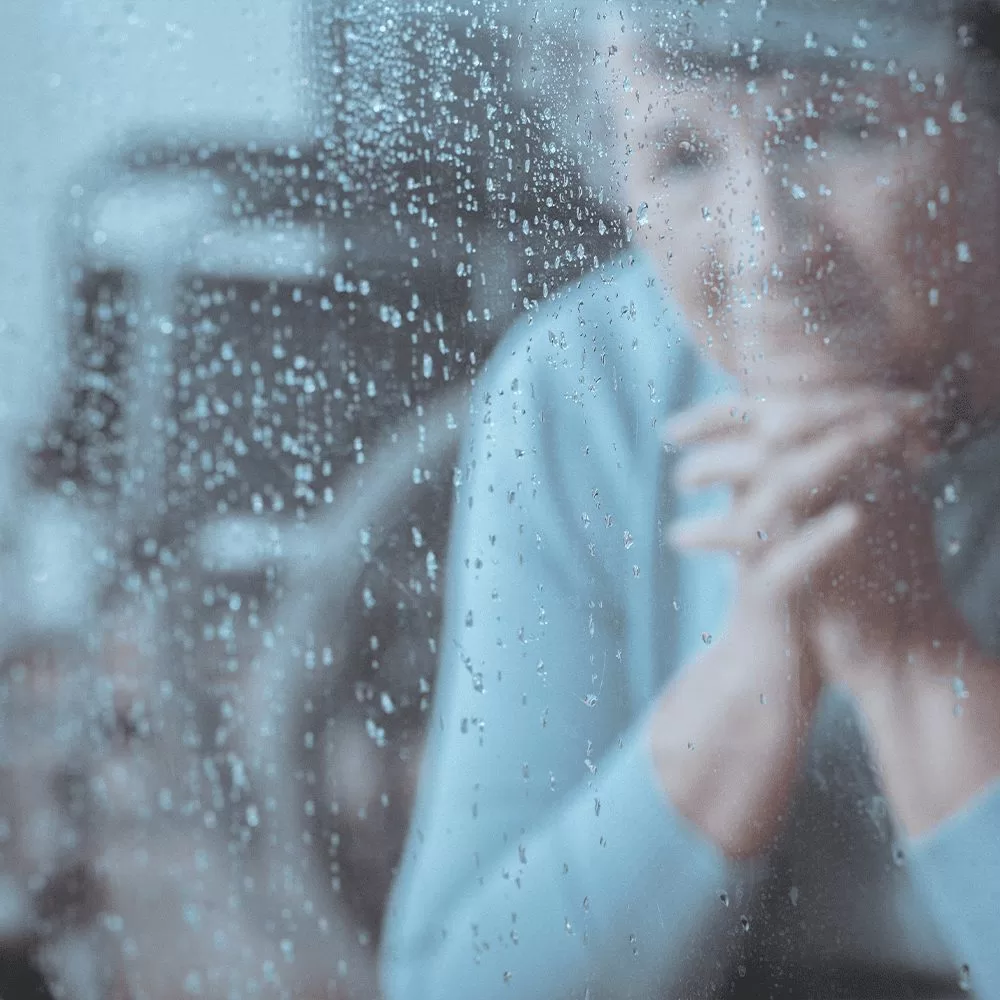Social isolation and loneliness health risk
is equal to smoking 15 cigarettes each day
Almost half of all women over the age of 75 live alone.
Loneliness causes physical and mental decline.
Social isolation and loneliness health risk
is equal to smoking 15 cigarettes each day
Almost half of all women over the age of 75 live alone. Loneliness causes physical and mental decline.
Stay engaged everyday to combat loneliness and isolation.
It’s important to remember that feeling lonely is a normal human experience, it’s something that many people go through. It’s also important to understand that loneliness is not a permanent state, it can change, and it’s possible to overcome it. With time and effort, you can build a support system of friends and loved ones who will be there for you.
Researchers followed the same older adults for years. to uncover the impact of social isolation. They discovered the percentage of seniors reporting being lonely increased over time. The same people reporting as lonely had declining abilities to perform Activities of Daily Living and increase in depression symptoms. One major contribution is this senior adult loneliness is the death of or distance from family and friends.
500k+
older women today are severely lonely
4
risk factors: genetics, death, conflict, abuse
41.7%
magnitude of depression among the elderly

Step 1: Seek Help and Annual Physical
The first step involves conducting a thorough assessment of the individual’s social, emotional, and cognitive well-being. Identify any existing support systems, evaluate the extent of social engagement, and assess mental health. This assessment serves as a foundation to tailor interventions to the specific needs of the elderly individual.
Step 2: Put Yourself Out There
Encourage the elderly individual to build and strengthen social connections. This may involve reconnecting with old friends, joining community groups, or participating in local senior centers. Facilitate the establishment of support networks that can provide companionship, understanding, and a sense of belonging.



Step 3: Hang Out with Young People
Promote intergenerational activities to bridge the gap between different age groups. Collaborate with local schools, community centers, or organizations to create programs that facilitate interactions between seniors and younger individuals. This can include mentorship programs, joint events, or educational initiatives that benefit both generations.

Step 4: Explore and Embrace Tech
Introduce and educate seniors on technology to facilitate virtual connections. Social media platforms, video calls, and online communities can provide avenues for communication with family members, friends, and support groups. Address any apprehensions or barriers to technology use and provide the necessary training and support.


Step 5: What Floats Your Boat?
Encourage the pursuit of hobbies and activities that align with the individual’s interests. This not only provides a sense of purpose but also creates opportunities for social engagement. Connecting with local clubs, classes, or hobby groups can foster new friendships and shared experiences, reducing feelings of isolation.
Step 6: Get Help
Recognize the importance of mental health support in combating social isolation and loneliness. Offer counseling services that provide a safe space for the elderly individual to express their feelings and concerns. Additionally, family counseling can address communication gaps and strengthen familial bonds, contributing to a more supportive environment.

Notes from the Author

My journey has always been about addressing the evolving needs of our aging population. While our focus has traditionally centered on physical health, a new crisis is unfolding – the mental health epidemic. In the wake of social isolation and the challenges brought about by our current circumstances, tackling mental health issues has become imperative. This essay explores the urgency of addressing the emerging mental health crisis and provides practical recommendations for navigating these uncharted waters.
The Unfolding Mental Health Epidemic:
The next epidemic is upon us, silently permeating through the fabric of our lives – mental health issues. The consequences of prolonged isolation, exacerbated by the chronic conditions and limitations faced by many seniors, can lead to a cascade of challenges, from loneliness to depression. Recognizing the symptoms and implementing proactive measures are crucial to mitigating the impact of this burgeoning crisis.
Recommendations for Mental Well-being:
Turn Off the Bad News:
Succumbing to the constant barrage of breaking news can take a toll on mental well-being. Recognizing the need for balance, I have shifted my focus from incessant news consumption to more uplifting alternatives. Engaging in books, podcasts, music, and brain games has proven to be a rejuvenating alternative, filling my mind with hopeful thoughts rather than the overwhelming negativity of news cycles.
Catch Some Rays:
Embracing the therapeutic power of nature is a crucial aspect of mental health. Stepping outside, breathing in fresh air, and reveling in the signs of life around us can provide a much-needed respite. While adhering to social distancing guidelines, the rejuvenating effect of sunlight can help combat the sense of isolation, offering a welcome change from the confines of our homes.
Cultivate Trust Relationships:
Trust relationships serve as a cornerstone for mental well-being. Recognizing the significance of having a sounding board, I encourage individuals to identify and nurture relationships where they can openly share unspoken anxieties. These connections act as a vital support system, helping individuals navigate the complexities of their emotions.
Audit Your Daily Routine:
The drastic shift in our daily routines demands introspection. Adapting to new work-from-home dynamics and altered responsibilities requires self-awareness. Acknowledging personal shortcomings and seeking accountability is crucial. Personally, I have contemplated a time study and even humorously considered a meeting with my “human resources” to address the challenges of maintaining discipline in this transformed work environment.
Life is Heavy, Good Grief:
The weight of collective grief is palpable, affecting various aspects of our lives. Acknowledging this emotional, physical, financial, social, and spiritual upheaval is the first step toward healing. Encouraging open dialogue about grief and its impact is essential. It is vital to remind ourselves and others that reaching out for help is not a sign of weakness but a courageous step toward coping with the challenges that life presents.
You Can Do It!
The mental health epidemic is a critical issue that demands our immediate attention. As we navigate these uncertain times, implementing the recommended strategies can foster resilience and well-being. As a senior care marketing expert, it is our collective responsibility to not only address the physical needs of our aging population but also to champion mental health initiatives that ensure a holistic and fulfilling quality of life for all. Together, we can combat the challenges posed by social isolation and loneliness, creating a society that prioritizes the mental well-being of every individual, especially our seniors.
Monica Stynchula – CEO / REUNIONCare, Inc.













